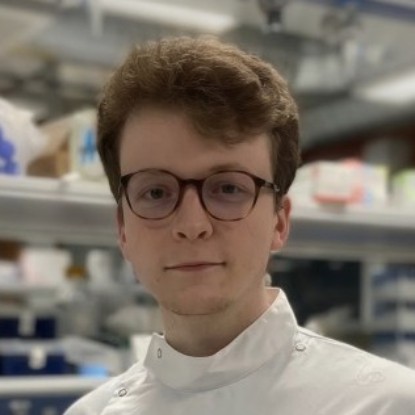
Jérémie Marlhens
PhD student since 2022
Contact
jeremie.marlhens@tu-...
work +49 6151 16-57 253
fax +49 6151 16-57 241
Work
S3/06 210
Merckstrasse 25
64283
Darmstadt
Jeremie Marlhens joined the Self-Organizing Systems Lab in December 2022. He is fascinated by the challenge of understanding complex biological systems and designing efficient ways to control and manipulate them. One of the most intriguing problems in this field is the inverse problem of inferring a system's structure from its outputs. While this is a well-studied problem in simple systems, the complexity of biological systems – including high dimensionality, stochasticity, and hidden dynamics – makes it challenging to apply these techniques.
Interestingly, there are similarities between circuit design and system identification. Both fields involve solving an inverse problem, but there are important differences to keep in mind. The ill-posed nature of the inverse problem becomes an issue when aiming to identify the exact mechanism underlying a particular observation. In contrast, in circuit design, the existence of multiple circuits that can exhibit the same behavior can be desirable. Furthermore, circuit design offers more freedom in asking for different behaviors, while system identification is constrained by the experimental setup.
Experimental techniques such as cell-free systems and high-throughput methods are powerful tools in biology that can accelerate the discovery of new biological systems and elucidate their behavior. On the theoretical side, Jeremie is interested in developing new approaches that incorporate machine learning to handle the complexity of biological systems while maintaining interpretability. By combining these experimental and theoretical tools, he aims to derive simple principles for designing and controlling complex biological systems, with a particular focus on synthetic biology and combinatorial circuits.
Through his PhD, Jeremie hopes to develop new strategies for understanding and manipulating biological systems. By leveraging these different tools and techniques, he aims to make progress in the field of synthetic biology, designing and controlling complex biological systems in ways that were previously impossible.
Possible Student Projects you can find here.
